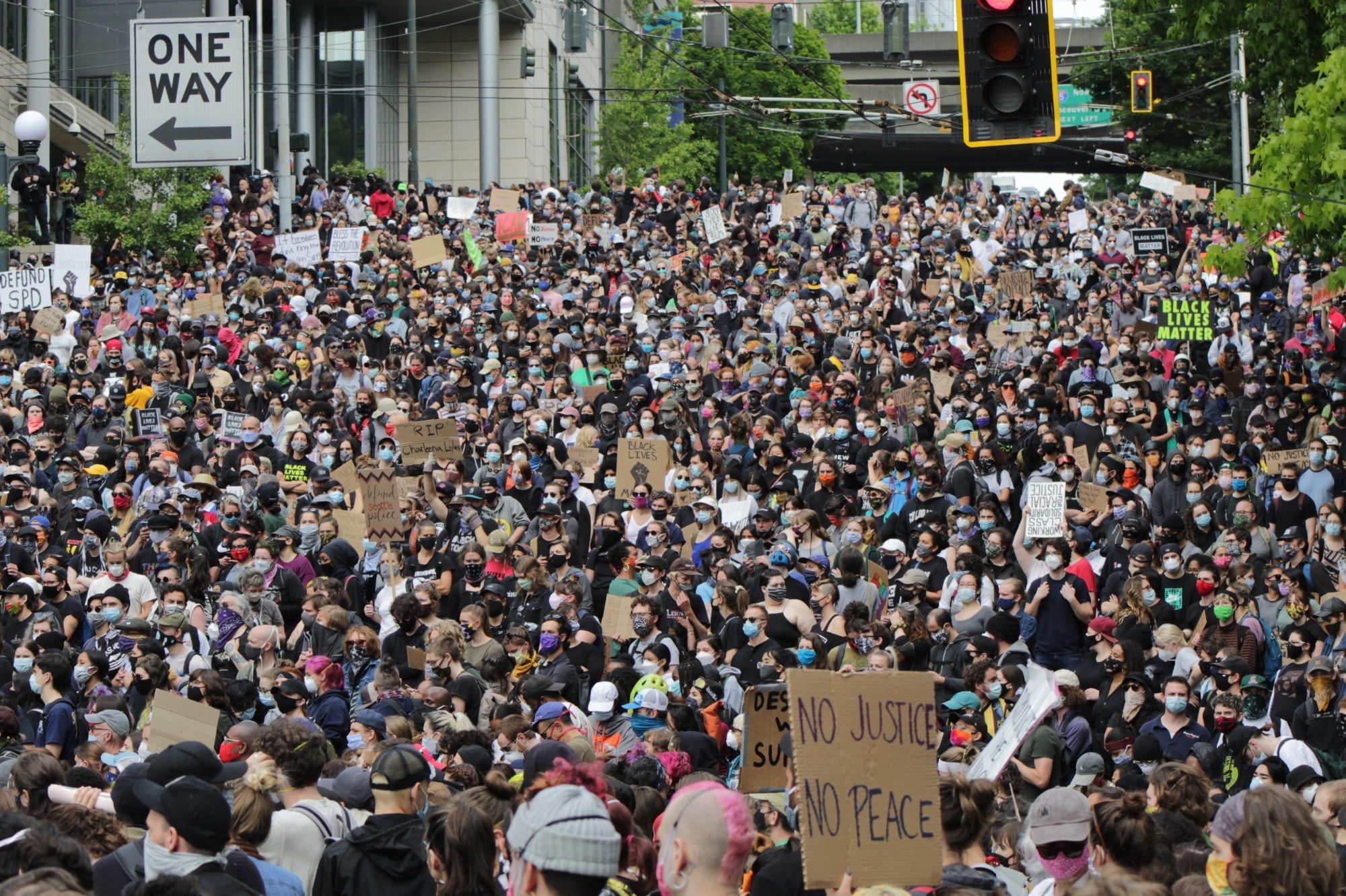This week, I watched 29-year-old Jacob Blake get shot by a police officer at least seven times in the back, at close range in front of his three young children, as he tried to get in his car in Kenosha, Wisconsin. Blake is recovering in intensive care, and may remain paralyzed.
Videos of police officers assaulting and killing Black people are nothing new to me. In 2014, I watched Eric Garner die in a choke hold at the hands of an officer. That same year I watched 12-year-old Tamir Rice get executed in a park because he was playing with a toy gun. In 2016, I saw Sandra Bland and Freddie Gray get arrested and then heard about them mysteriously dying in police custody.
In 2016, when I watched a police officer shoot Philando Castile to death during a traffic stop, I lost it. My husband rushed in to see what was wrong with me.
“Why do they keep killing us?” I said, as if he had an actual answer. He didn’t know what I was talking about. When I played the video back for him, he was silent for a few moments.
He said that he didn’t know, but I knew. It was racism. And we both didn’t know if anything would be done about it. That felt debilitating.
After learning that no real justice was brought to these deaths, I became numb to all injustices.
In 2020, I watched as Ahmaud Aubrey was chased down by white men in two trucks and shot to death. No one was taken into custody until that video was released months after the murder.
After learning that no real justice was brought to these deaths, I became numb to all injustices, doubtful that anything could ever be done and that any real change would ever occur.
Then on May 25, 2020, there was yet another Black killing by law enforcement. The victim’s name was George Floyd. I saw it on my phone but kept scrolling. I didn’t have the courage to press play and watch another murder, destined to go unpunished.
Later, my husband confronted me in the kitchen as I prepared dinner. “He killed him!” he said, incredulously. “They killed him!”
I remained silent, acknowledging him by slowly shaking my head in defeat while seasoning the salmon, thinking, What else is new?
I know it’s not okay for me to think this way, but that’s how complacent I had become.
I scrolled through social media later that day. I saw a photo of white women with prideful sneers and arched backs, displaying their star-spangled T-shirts that read, “Racist White Bitch.” I saw a photo of white men holding up posters that read, “Only White Lives Matter.”
I also saw police officers taking a knee at the Black Lives Matter protests. I watched as racially mixed crowds in every state march the streets. Then I saw crowds in almost every continent march for Black justice. I am amazed by how many people—all kinds of people—are in solidarity with the Black community.
This pandemic is the first time much of the world is getting a taste of what it feels like to be Black.
My husband and I have been social distancing along with the rest of the world. Perhaps that was why, when George Floyd breathed his last breath under the knee of a cop after suffering for eight minutes and 46 seconds while pleading that he could not breathe, the entire world had time to watch.
This pandemic is the first time much of the world is getting a taste of what it feels like to be Black. For most of the middle and working class—especially the working class—salaries are cut, or you’re laid off from your job. Rent is due and you don’t know how you’re going to pay the bills.
Filing for unemployment is a bunch of red tape, delaying income. Meanwhile, being unemployed makes you feel useless. Depression is setting in. Children want the assurance of safety that you cannot give. You want the freedom to go out into the world without an immediate threat that something might kill you. And if you do go out, people make a conscious choice to keep their distance from you and might even sanitize themselves after close contact. As far as other people are concerned, you are a threat. You’ve got the cooties.
They told us 14 days. Then a month. Easter. Memorial Day. Fourth of July. It’s going on six months, now. For Black people, it’s been going on 400 years.
“We’re all in this together.” This is what we keep hearing on television, on the Internet, and in emails regarding safety protocols. Although COVID-19, like so many other manifestations of structural racism, stacks up heavily against people of color, everyone is at risk.
“Injustice anywhere is a threat to justice everywhere … whatever affects one directly, affects all indirectly.” Martin Luther King Jr. said that.
I’m a Black woman. My husband is white. Whatever affects me, affects him, even if he hasn’t had the experience of being Black. More and more families are like us.
It arguably took a pandemic to bring global awareness toward racial injustice. Still, I worry that political responses to the protests, along with the pandemic and economic meltdown—risk stalling our momentum for racial justice.
It took seeing the world stand up against George Floyd’s murder to encourage me to believe that justice for Black people isn’t so hopeless anymore. Now that the world’s watching, maybe this time, something will finally be done. We must not lose focus on how and why we got here.
Photograph of protesters in Seattle in June 2020 by SounderBruce via Wikimedia Commons/Creative Commons 4.0





Show Comments